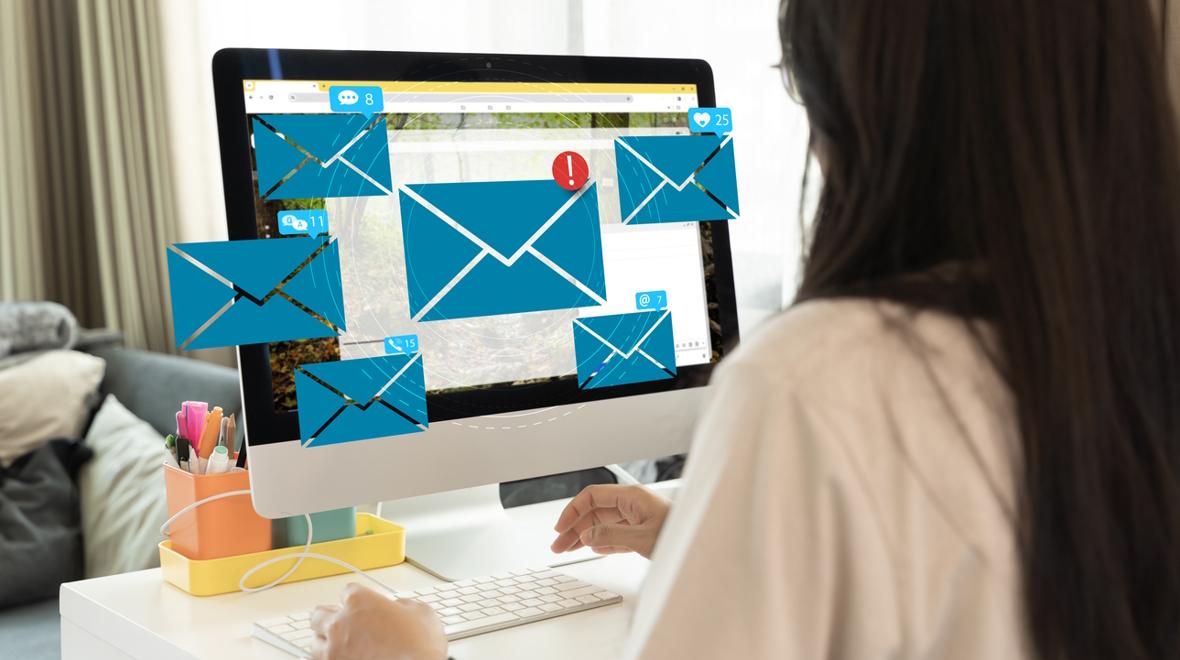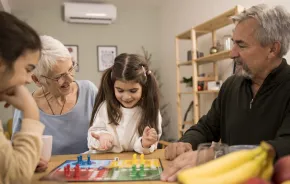
Photo:
iStock
Thousands of photos. Currently, 1,128 unread emails. Not enough storage.
If any of the above is familiar, you know that technology comes with clutter all its own. The mental load added by devices can be overwhelming. This year, make a commitment to declutter your devices, because just like clearing clutter from our homes, clearing clutter from our digital lives helps make room for greater calm and happiness. I spoke with professional organizer Bethel Swift-Muñoz, founder of Real Life Professional Organizing, for practical tips that make the process attainable.
1. Don’t aim for perfection
Getting a job done is more important than getting a job done perfectly. “As with any organizing project, think about good, better and best scenarios,” says Swift-Muñoz. “Before you jump in, envision an [attainable] end goal to motivate you toward completion.” Life often gets in the way, so don’t beat yourself up if you “only” do a good job the first time around.
2. Free up storage
Start small: the computer desktop
Swift recommends having from one to five (maximum 10) main folders on your desktop. Overorganizing can be counterproductive. Ideally, structure folders to be no more than three clicks away from any file. It’s important to name folders and files the way you will look for them. Ask yourself, “When I look for a digital copy of my car registration, will I naturally type ‘truck,’ ‘vehicle’ or ‘F-150’ into the search bar?”
Be purposeful with email
Fewer email addresses are easier to manage, of course, but Swift-Muñoz recommends having separate work and personal email addresses to prevent getting sucked into work when you embark on personal tasks (or vice versa). Use yet another email address for signing petitions or making purchases, since these generate follow-up spam. If using email folders, Swift-Muñoz proposes keeping the system simple for easy access and maintenance. She uses an “Active” and “Archive” structure with a few subfolders.
Unsubscribe
The Unroll.Me app helps people unsubscribe from unwanted emails en masse and will condense others into “digests” to view at the user’s convenience.
3. Tackle the mother lode — photos
Swift-Muñoz’s number-one suggestion for an overwhelming number of photos on phones is to delete, delete, delete! “As with physical items, the fewer we have, the easier it is to organize. By regularly deleting duplicates, old screenshots and blurry snaps, you’ll have an easier time finding the photos you really want.”
How to get started
Go through photos starting with the oldest and work on them for 10‒20 minutes each day. Or, begin with the most recent photos and work your way backward. Seize free moments to delete photos: in the drive-through line; while you wait for kids at school or after-school activities; during a child’s naptime; or when you have travel downtime. Again, a few minutes each day makes a difference!
Once you’ve deleted photos, set up a simple file system and add new photos to it as you go. Use the Mylio app to organize photos, videos, report cards and other meaningful digital files in one lasting library that’s accessible on all your devices. Fit even the largest photo library on your phone without reaching storage limits and set automated backups. Easily import years of Instagram, Flickr and Facebook images.
Create a backup system
Few things are more upsetting than losing precious photos of our children. To avoid this, Swift-Muñoz recommends regularly backing up photos to three locations: cloud-based storage, your computer desktop and an external hard drive. “I prefer to do most sorting and renaming of photos on my laptop and then upload them to my secondary backup systems,” says Swift-Muñoz. When naming folders, she puts the date first so photos are automatically sorted in chronological order. “The most important thing to remember when naming folders and photo files is to go broader initially,” she says. “You can always get more specific later.” It can be very difficult to maintain files the other way around. If you have photos and videos stored only in apps like Instagram and Facebook, be sure to back up any of those you want to keep as well.
Share the love
Consider preserving special photos by creating an annual photo book for yourself or to give to loved ones as gifts. Or create shareable digital folders.
Enlist help
When it comes to photos, get the kids involved. Most kids enjoy choosing favorite photos — let them help decide which ones to keep. To find a professional organizer, search by city on the National Association of Professional Organizers website. Swift-Muñoz is adding photo organizing to her repertoire of services starting this year.
4. Stay motivated
The best way to stay motivated is to not let digital clutter get out of hand again. Schedule maintenance on your calendar, such as “delete emails,” as a weekly or monthly to-do item. Try pairing these tasks with another activity you do regularly (housecleaning, laundry, doctor visits, etc.).
5. Officially sign off
If you work from home, avoid the blurred boundaries and mental clutter of always being connected and available. To officially sign off for the day, consider a ritual that creates boundaries between home life and work life. “Try an initiation and cessation routine, such as a quick gratitude practice or affirmation to transition in and out of work and family modes,” suggests Swift-Muñoz.
Gretchen Rubin, author of “Outer Order, Inner Calm: Declutter & Organize to Make More Room for Happiness,” suggests that adding an element of fun motivates people to complete a task. To that end, she created a Desk-Cleaning Bingo game; each square contains a small, manageable task. Play every day or once a week for a satisfying sign-off. Visit her Instagram page, @gretchenrubin, or her website for details.
Most importantly, remember that any day is a good day to start decluttering!
More organizing and spring cleaning articles for parents: |











